9 Surprising Reasons You Can't Stop Sweating
The thermometer is still climbing, yet you're already dripping through your sleeveless featherweight tank. Here's what could be causing your meltdown.
By Corrie Pikul
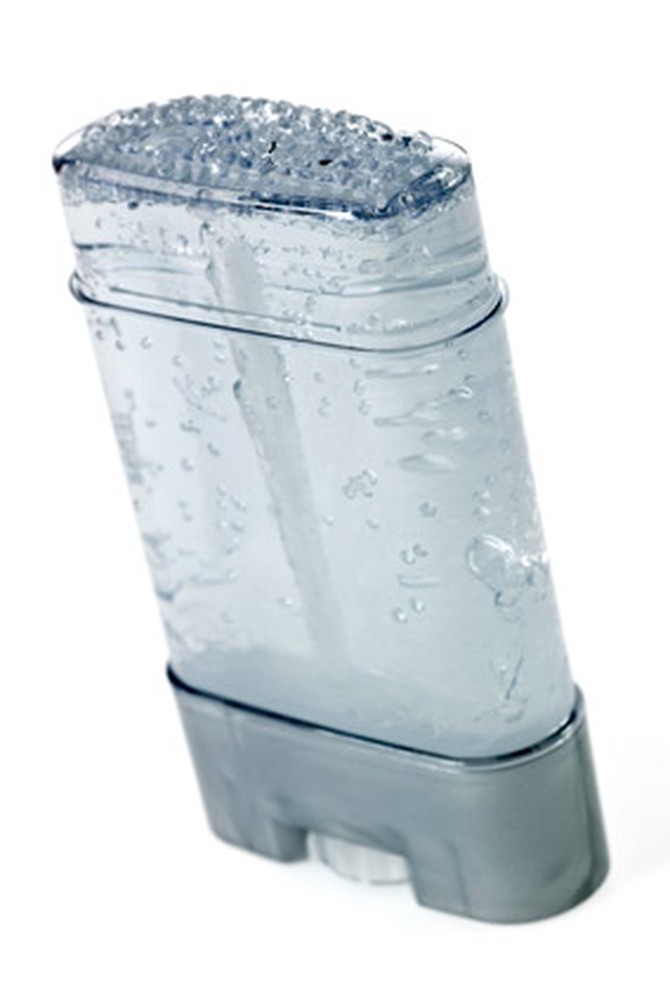
Photo: Thinkstock
You're Borrowing Your Husband's Antiperspirant
If you're using a man's brand because you think it's stronger, don't bother, says dermatologist David Pariser, MD, co-founder of the International Hyperhidrosis Society. The active ingredient in most antiperspirants is an aluminum compound (you'll see it in different forms), and the concentration ranges from around 12 percent to 20 percent. Anything higher than 20 percent can cause irritation, which is why you'll only see amounts that high in "clinical" OTC versions or prescription formulations like Drysol.
One more thing: The main difference between basic men's and women's anti-sweat sticks is the scent.
One more thing: The main difference between basic men's and women's anti-sweat sticks is the scent.
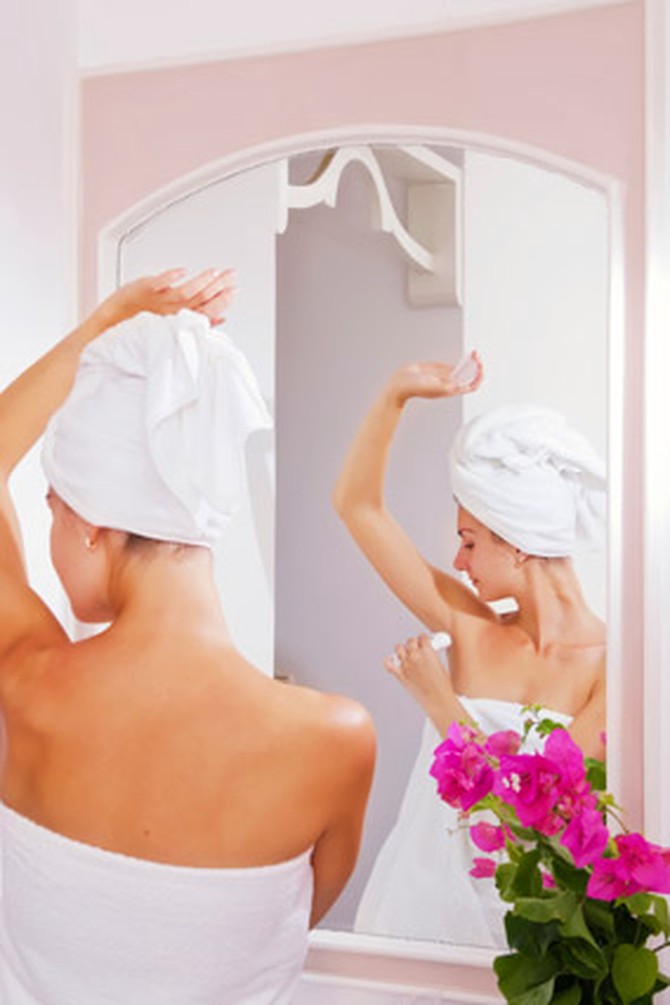
Photo: Thinkstock
You're Getting Ready to Fight Sweat in the Morning
Antiperspirants work by producing a salt compound that physically blocks pores, and this chemical process works better when skin is completely dry, says Pariser (moisture causes the chemical process to take place on the surface of the skin, not underneath it). We tend to sweat less before bed, which is why all antiperspirants are more effective when applied at night. You don't even need to shower first, says Pariser; but if your armpits are damp, you can use a hairdryer to make them completely moisture-free. Pariser says the plugs will stay put for around 24 hours, even during a workout and a rinse.
One more thing: If you need extra reassurance before going to work, swipe on some deodorant. It won't help fight wetness, but it will mask odors.
One more thing: If you need extra reassurance before going to work, swipe on some deodorant. It won't help fight wetness, but it will mask odors.
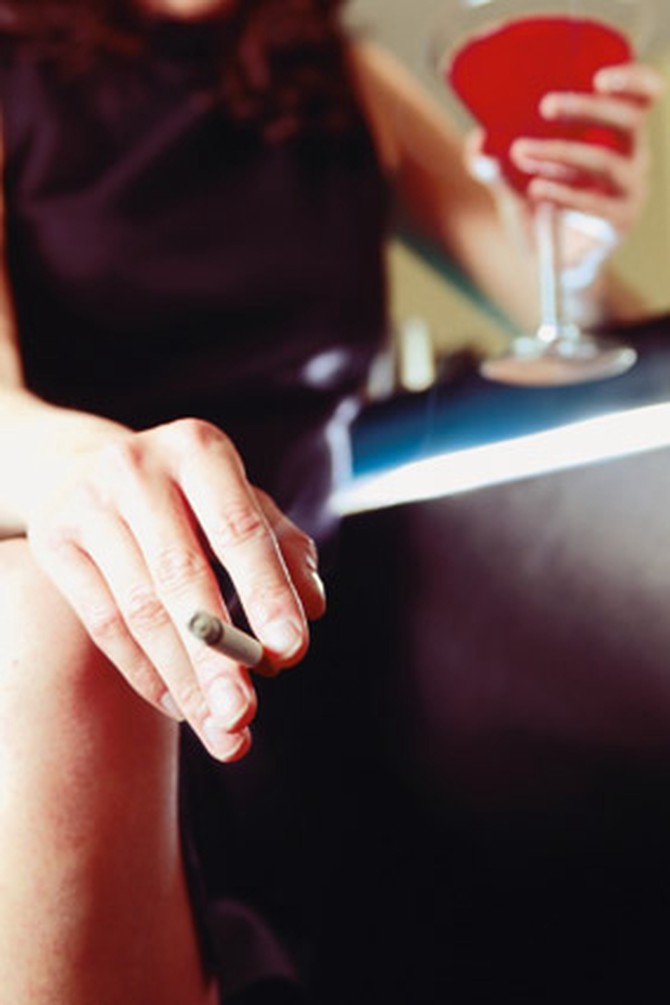
Photo: Thinkstock
You're Giving In to Your Vices
The latte, the martini, the cigarette you bummed from a friend—on a hot night, these indulgences will make you feel even sweatier. Alcohol dilates blood vessels, raising overall body temperature and increasing sweating, while caffeine stimulates the central nervous system and activates the sweat glands (as can nicotine, to a lesser effect). To be more comfortable in creeping temperatures, especially if you plan on tearing up the dance floor, consider ordering a decaf iced coffee, a refreshing ice tea spritzer, or a single, sippable martini with extra rocks.
One more thing: Smoking can also affect the odor of your sweat.
One more thing: Smoking can also affect the odor of your sweat.
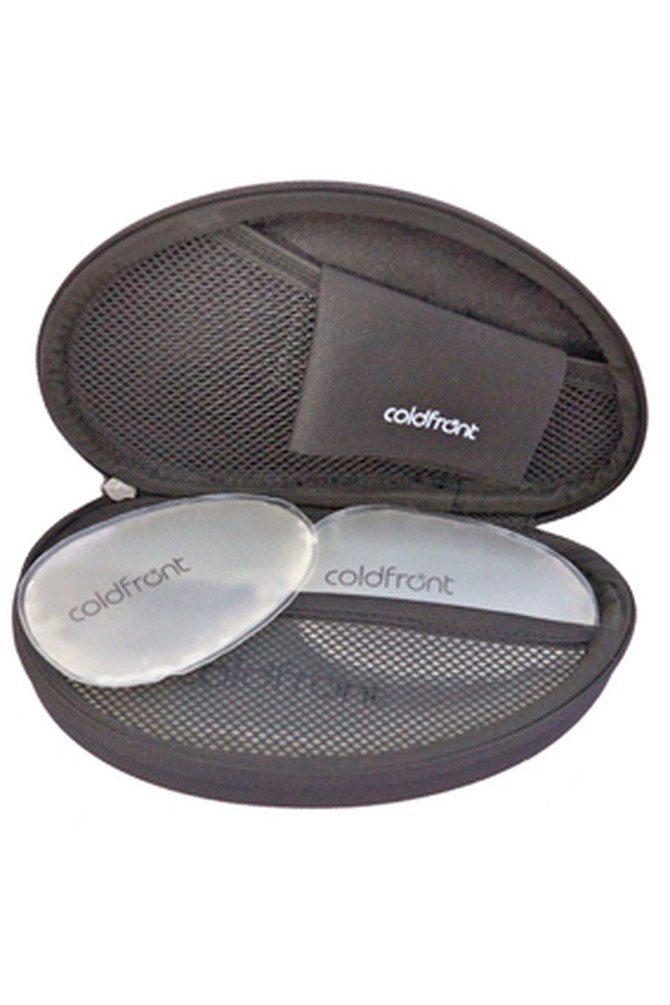
Photo: Courtesy of Coldfront
The Ice Cube You've Been Holding to Your Neck Has Melted
In an effort to chill out at a sweltering bar, you may have used an ice cube from your cocktail to bring your skin temperature back down—--effective, yes, but messy and temporary. The new Coldfront pouches offer a convenient, reusable alternative. These palm-sized packs, which look like two silicone breast implants, are filled with a non-toxic polymer gel, and come in a carrying case that keeps them cool for up to 12 hours. You can reactivate them after use by popping the case in the freezer overnight, or for another 12 hours.
One more thing: The manufacturer suggests putting the packs in your hands or pressing to your forehead, but we were inspired to slip them into a padded bra. They're small enough to be subtle and come with an absorbent cloth to mop up excess perspiration.
One more thing: The manufacturer suggests putting the packs in your hands or pressing to your forehead, but we were inspired to slip them into a padded bra. They're small enough to be subtle and come with an absorbent cloth to mop up excess perspiration.
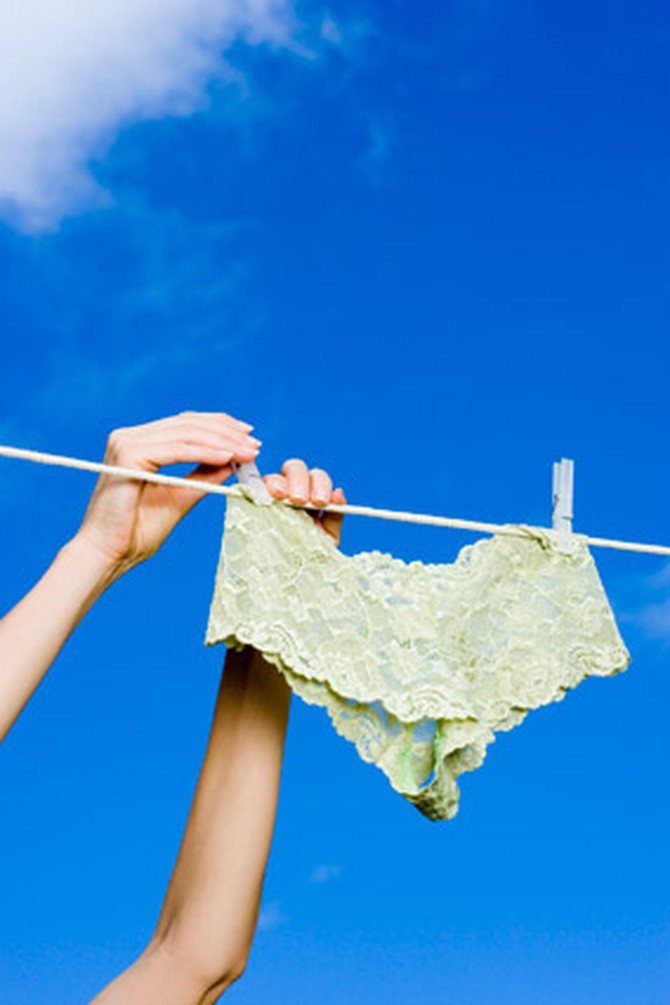
Photo: Thinkstock
Your Undergarments Are Too Hot for Even You to Handle
Nylon and rayon fabrics can trap wetness against the skin and are less likely to allow it to evaporate. This is especially uncomfortable if the fabric sticks to areas of the body that are prone to sweat, like the feet, groin and under the breasts. On steamy days and nights, choose underwear and bras made from breathable cotton or, even better, wicking materials like CoolMax or Dri-FIT.
One more thing: Make sure the fit isn't so snug that it prevents evaporation.
One more thing: Make sure the fit isn't so snug that it prevents evaporation.
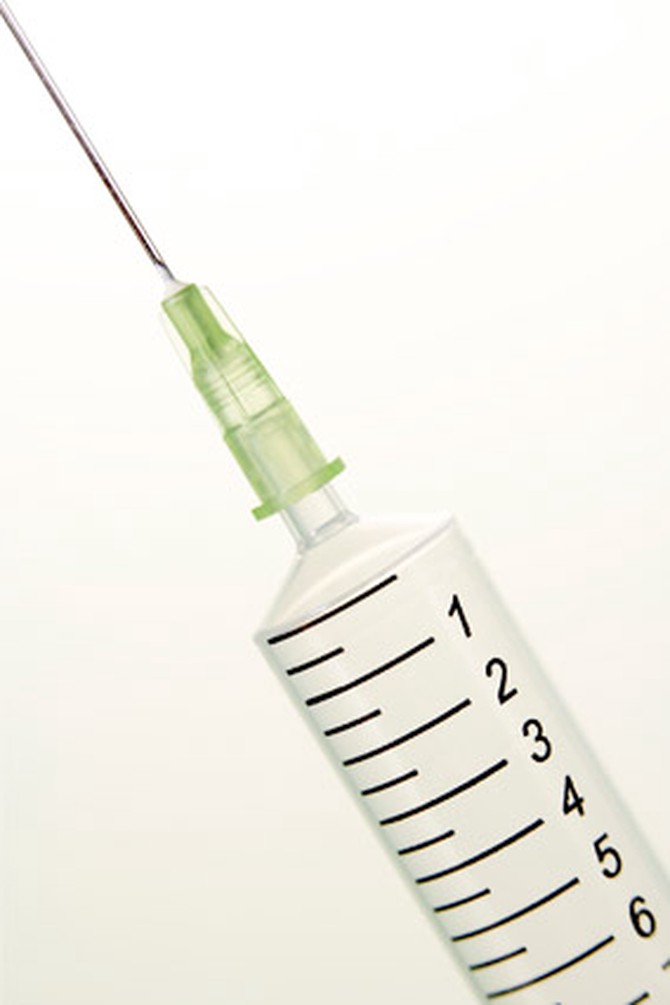
Photo: Thinkstock
You're Afraid of Needles
Botox can temporarily freeze up sweat glands in the face, hands, feet and groin. Pariser explains that the neurotoxin drug inhibits the release of acetylcholine and blocks the nerves that stimulate sweating. A dermatologist will administer the drug via multiple, quick, stinging injections. The minor pain is worth it for heavy perspirers: Most people feel completely dry for at least three or four months after the procedure.
One more thing: The amount of time it takes for sweating to return to pre-injection levels can vary, but Pariser says the majority of patients schedule another appointment within six months.
One more thing: The amount of time it takes for sweating to return to pre-injection levels can vary, but Pariser says the majority of patients schedule another appointment within six months.
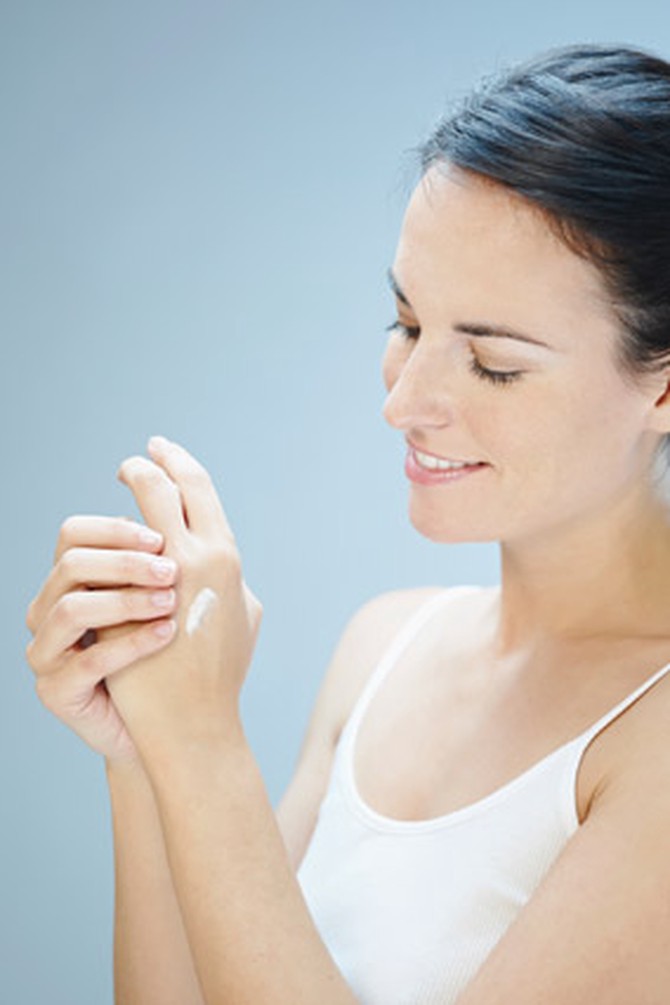
Photo: Thinkstock
You're Smearing Deodorant on Your Hands
This will probably just make your palms feel greasy as well as sweaty. A better idea, says Pariser, is iontophoresis, which uses ionized water to conduct a very mild electrical current on the skin's surface. The mechanism behind iontophoresis isn't completely understood, but Pariser says the theory is that the electric current and mineral particles in the water act together to microscopically thicken the outer layer of the skin, blocking the flow of sweat to the surface. For the hands and feet, in-office iontophoresis treatments have had a success rate of over 80 percent, according to the American Academy of Dermatology.
One more thing: Unfortunately, the dermatological devices are too awkward and messy to use with armpits.
One more thing: Unfortunately, the dermatological devices are too awkward and messy to use with armpits.
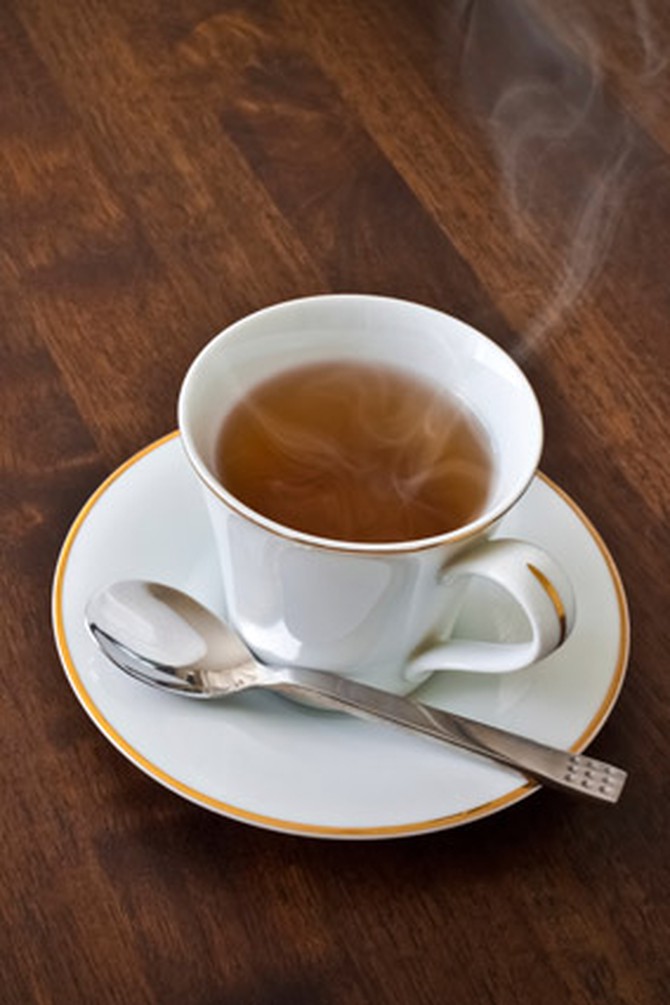
Photo: Thinkstock
You Fell for the Hot-Tea Myth
You may have heard that drinking a steaming beverage when you're hot will make you sweat, and the evaporation of that sweat will then help you cool off. While it's true that the tea will make you damp, it will also increase your body temperature, so you'll need more than a few drops of perspiration to cool you down.
One more thing: Instead of sipping tea, try sticking a green-tea bag under each armpit (the area must be bone-dry first). Pariser says the theory is that the tannic acid may dissolve the outer layer of the skin just enough to create some blockage of the pores. While some of his patients have had success with this home remedy, he says it's still not as effective as antiperspirant.
One more thing: Instead of sipping tea, try sticking a green-tea bag under each armpit (the area must be bone-dry first). Pariser says the theory is that the tannic acid may dissolve the outer layer of the skin just enough to create some blockage of the pores. While some of his patients have had success with this home remedy, he says it's still not as effective as antiperspirant.
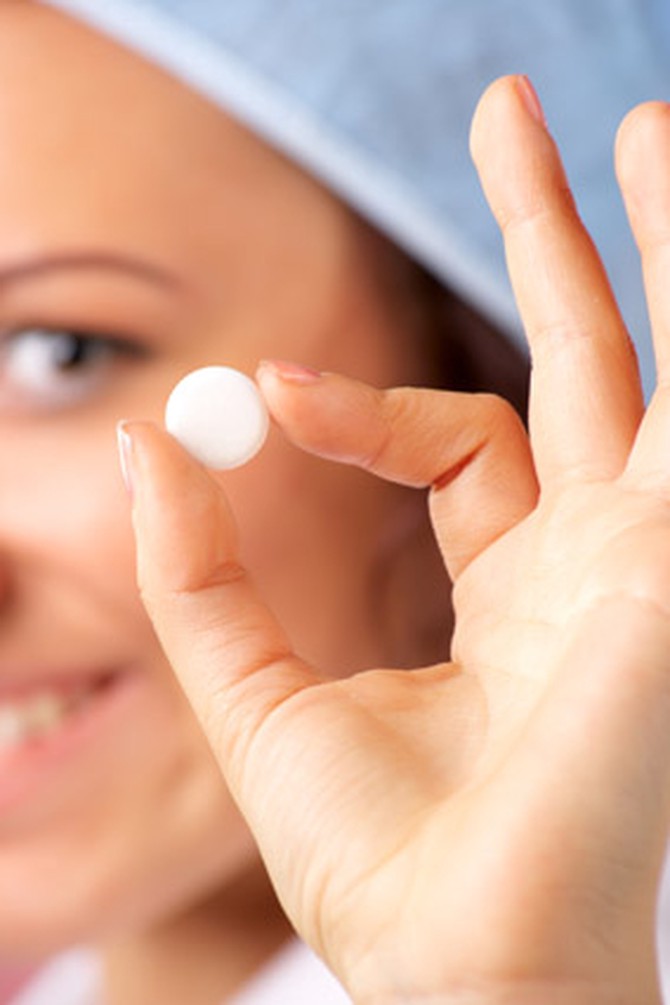
Photo: Thinkstock
You're Waiting for a Magic Pill Designed to Stop Perspiration
The FDA has not yet approved any oral drugs for sweating, says Pariser. However, you can talk to your doctor about off-label uses of medications like anticholinergics, which work by blocking the transmission of acetylcholine, the chemical messenger responsible for excessive sweating. Pariser says that anticholinergics have been used in the past to treat stomach ulcers (by decreasing acid) and overactive bladders (by decreasing urinary fluids). When used to treat hyperhidrosis, they usually cause uncomfortable dryness in bodily orifices such as the mouth, eyes and vagina.
One more thing: These drugs aren't meant to be a long-term solution, and are best suited for serious sweaters (think Albert Brooks in Broadcast News) who have tried everything else.
Next: 5 fixes for your most embarrassing workout uglies
One more thing: These drugs aren't meant to be a long-term solution, and are best suited for serious sweaters (think Albert Brooks in Broadcast News) who have tried everything else.
Next: 5 fixes for your most embarrassing workout uglies
Published 06/18/2012

